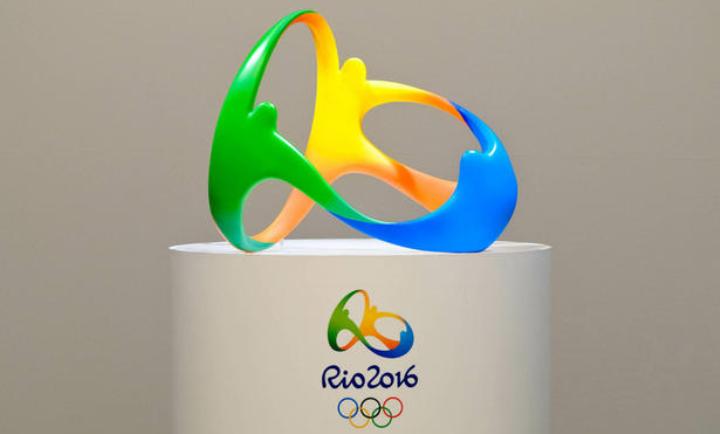
The World Anti-Doping Agency (WADA) called for Russia to be completely banned from the Rio Olympics and other international sport after an investigation found rampant state-run doping at the 2014 Sochi Winter Olympics and other events.
An investigation by Canadian law professor Richard McLaren for WADA found the FSB secret service helped “the state-dictated failsafe system” carried out by the sports ministry and covering 30 sports.
“WADA calls on sport movement to deny Russian athletes participation at international competition including Rio until ‘culture change’ achieved,” the international anti-doping agency spokesman Ben Nichols said in a statement on Twitter.
International Olympic Committee members were to hold an emergency telephone conference on Tuesday to decide provisional sanctions over what IOC president Thomas Bach called “a shocking and unprecedented attack on the integrity of sports and on the Olympic Games.”
McLaren’s report said the cover up started in 2010 after Russia’s “abysmal” results at the Vancouver Winter Olympics and continued until 2015 after the Sochi Games.
President Vladimir Putin made the Sochi Games a showcase event and more than $50 billion was spent putting it on.
Russia, which had strongly denied any state involvement, is already banned from international athletics by the world body, the IAAF, because of doping exposed last year.
There will no be mounting pressure for that to be extended even though Bach and some international federations have said there has to be a way for athletes proved to be clean to compete in Rio.
“The IOC will not hesitate to take the toughest sanctions available against any individual or organisation implicated,” Bach said in a statement announcing the IOC conference on Tuesday.
McLaren’s report said the Sports Ministry under Vitaly Mutko organised the subterfuge under which tainted urine samples were replaced and kept away from international observers.
– Failsafe doping –
“The Moscow laboratory operated for the protection of doped Russian athletes within a state-dictated failsafe system,” McLaren said.
“The Sochi laboratory operated a unique sample swapping methodology to enable doped Russian athletes to compete at the Winter Olympic Games,” he added.
McLaren did not make any recommendations on sanctions. But the call by WADA is likely to followed up by the United States and Canadian anti-doping agencies.
Both had said before the report’s release that a blanket ban on Russia from Rio, which starts August 5, should be considered if the evidence was damning.
“The Ministry of Sport directed, controlled and oversaw the manipulation of athletes’ analytical results or sample swapping and the active participation and assistance of the FSB (Russian Federal Security Service), CSP (Center of SportsPreparation for Russian athletes) and both Moscow and Sochi laboratories,” McLaren said.
WADA mandated McLaren to investigate allegations made by former Moscow anti-doping laboratory director Grigory Rodchenkov in May.
– Whistleblower hiding –
Rodchenkov is now in hiding in the United States and wanted by Russian authorities.
McLaren called the Rodchenkov “a credible and truthful person” despite admitting to concoting doping cocktails for Russian athletes.
“I realize there are other aspects of his life that are not appropriate,” McLaren said. “I didn’t need to get into that.”
McLaren dismissed any notion that having less than two months to conduct the investigation or the reluctance of some witnesses to come forward compromised the results.
“I’m supremely confident in our findings,” McLaren said. “We’ve had a very intense 57 days.”
McLaren said his report was handed over to WADA on Saturday and had not been leaked in advance.
He said a US-Canadian letter pushing for a total ban on Russian competitors at Rio was based on “rampant speculation” about the findings.
“I don’t think it has any impact whatsoever on the report and I pay no attention to it,” McLaren said. “I’m positive the report was not leaked. What others did was all speculation.”
Rodchenkov said an intricate doping program was “working like a Swiss watch” at Sochi and helped at least 15 Russian medalists by making positive samples vanish and removing and re-sealing some samples.
McLaren said the evidence of tampering with sample bottles in Sochi was apparent and that similar bottles could be used at Rio without fear.
“The bottles can be described as tamper evident,” he said. “With relatively easy training, people can idenitify if there are any problems in Rio.”
He said there should be no problems with sample bottles in Rio.
McLaren found some Russian officials involved in the doping program were on national sport federations but added, “What we don’t know is how far their knowledge goes.”
There was no mandate to find individual dope cheats or conclusions about people being forced to dope in the Russian program. – Agence France-Presse






























